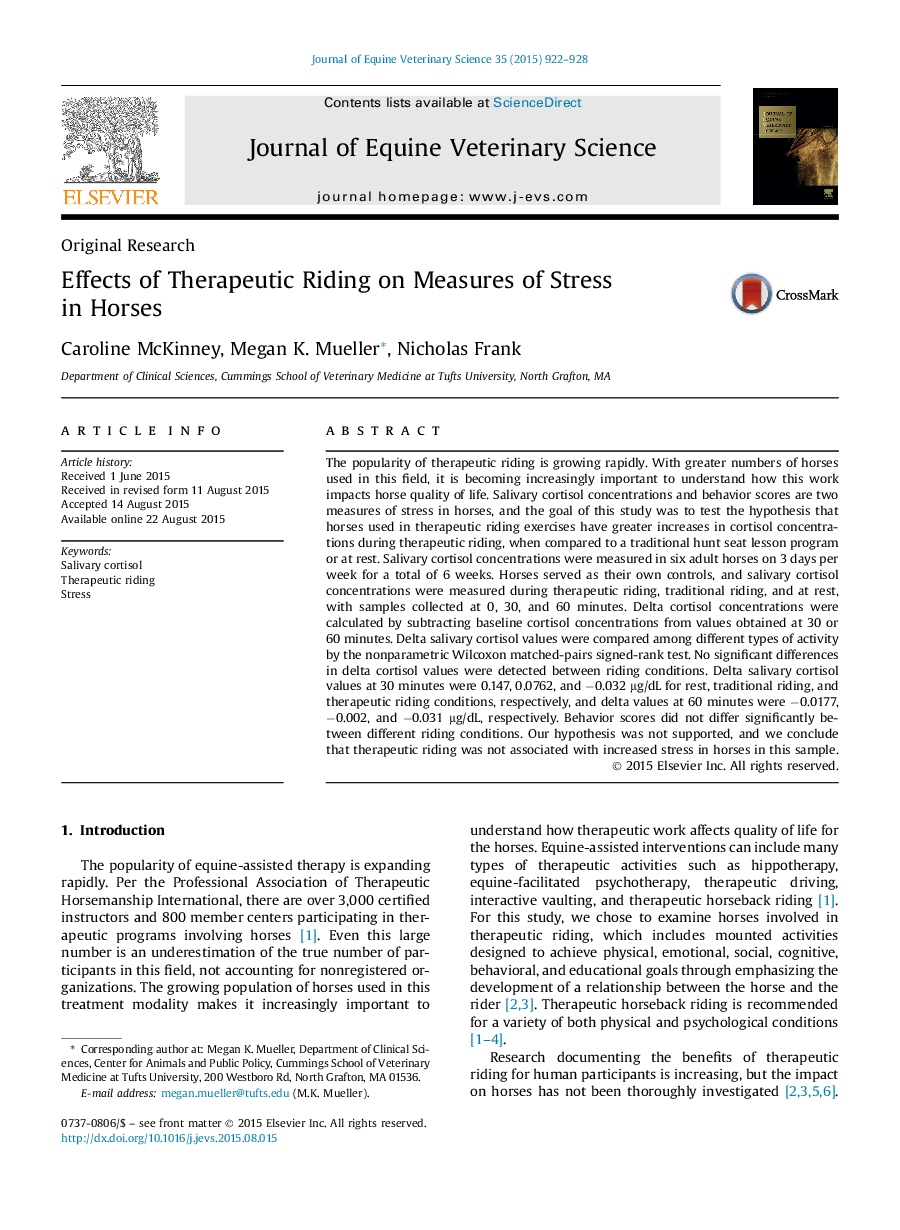| Article ID | Journal | Published Year | Pages | File Type |
|---|---|---|---|---|
| 2394743 | Journal of Equine Veterinary Science | 2015 | 7 Pages |
•We examine the effects of therapeutic riding on measures of stress in horses.•Salivary cortisol was measured in therapeutic riding, mainstream riding, and rest.•No significant differences in delta cortisol values were detected between groups.•Behavior scores did not differ significantly between riding conditions.
The popularity of therapeutic riding is growing rapidly. With greater numbers of horses used in this field, it is becoming increasingly important to understand how this work impacts horse quality of life. Salivary cortisol concentrations and behavior scores are two measures of stress in horses, and the goal of this study was to test the hypothesis that horses used in therapeutic riding exercises have greater increases in cortisol concentrations during therapeutic riding, when compared to a traditional hunt seat lesson program or at rest. Salivary cortisol concentrations were measured in six adult horses on 3 days per week for a total of 6 weeks. Horses served as their own controls, and salivary cortisol concentrations were measured during therapeutic riding, traditional riding, and at rest, with samples collected at 0, 30, and 60 minutes. Delta cortisol concentrations were calculated by subtracting baseline cortisol concentrations from values obtained at 30 or 60 minutes. Delta salivary cortisol values were compared among different types of activity by the nonparametric Wilcoxon matched-pairs signed-rank test. No significant differences in delta cortisol values were detected between riding conditions. Delta salivary cortisol values at 30 minutes were 0.147, 0.0762, and −0.032 μg/dL for rest, traditional riding, and therapeutic riding conditions, respectively, and delta values at 60 minutes were −0.0177, −0.002, and −0.031 μg/dL, respectively. Behavior scores did not differ significantly between different riding conditions. Our hypothesis was not supported, and we conclude that therapeutic riding was not associated with increased stress in horses in this sample.
